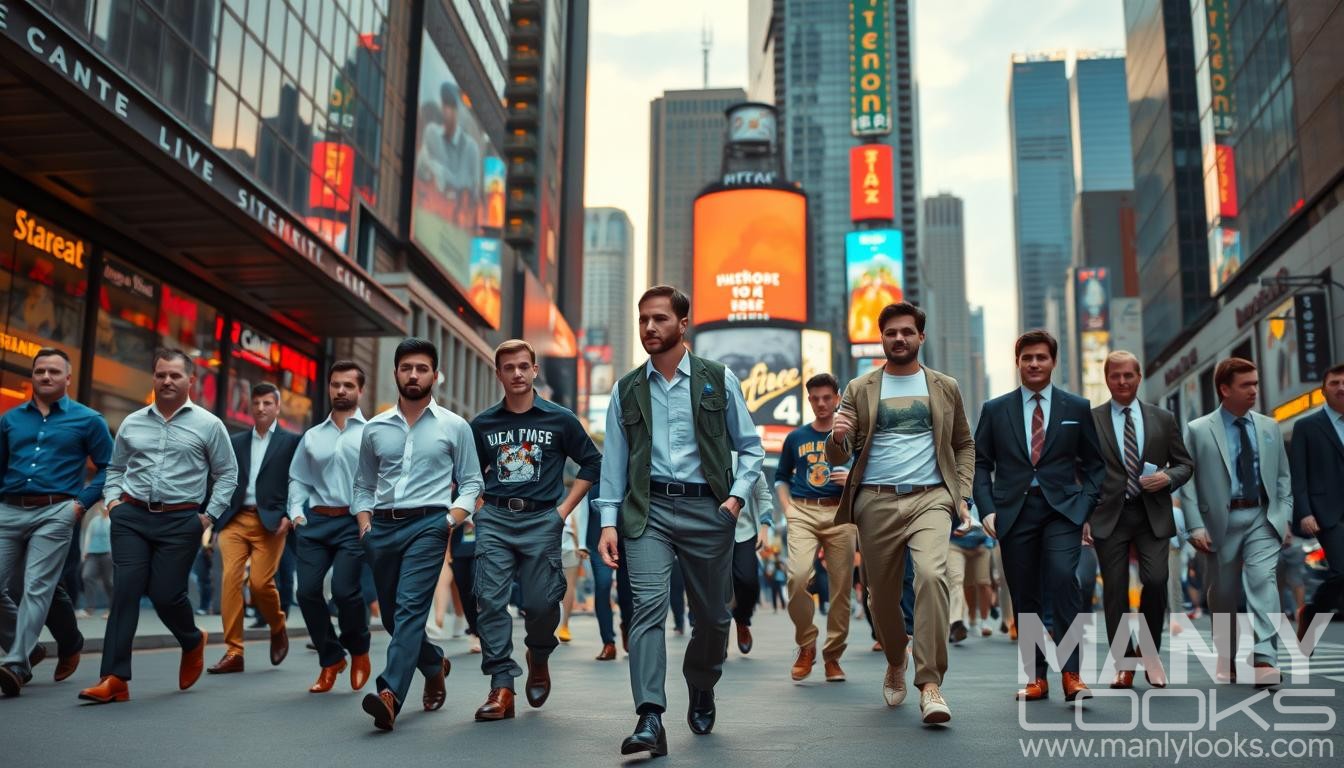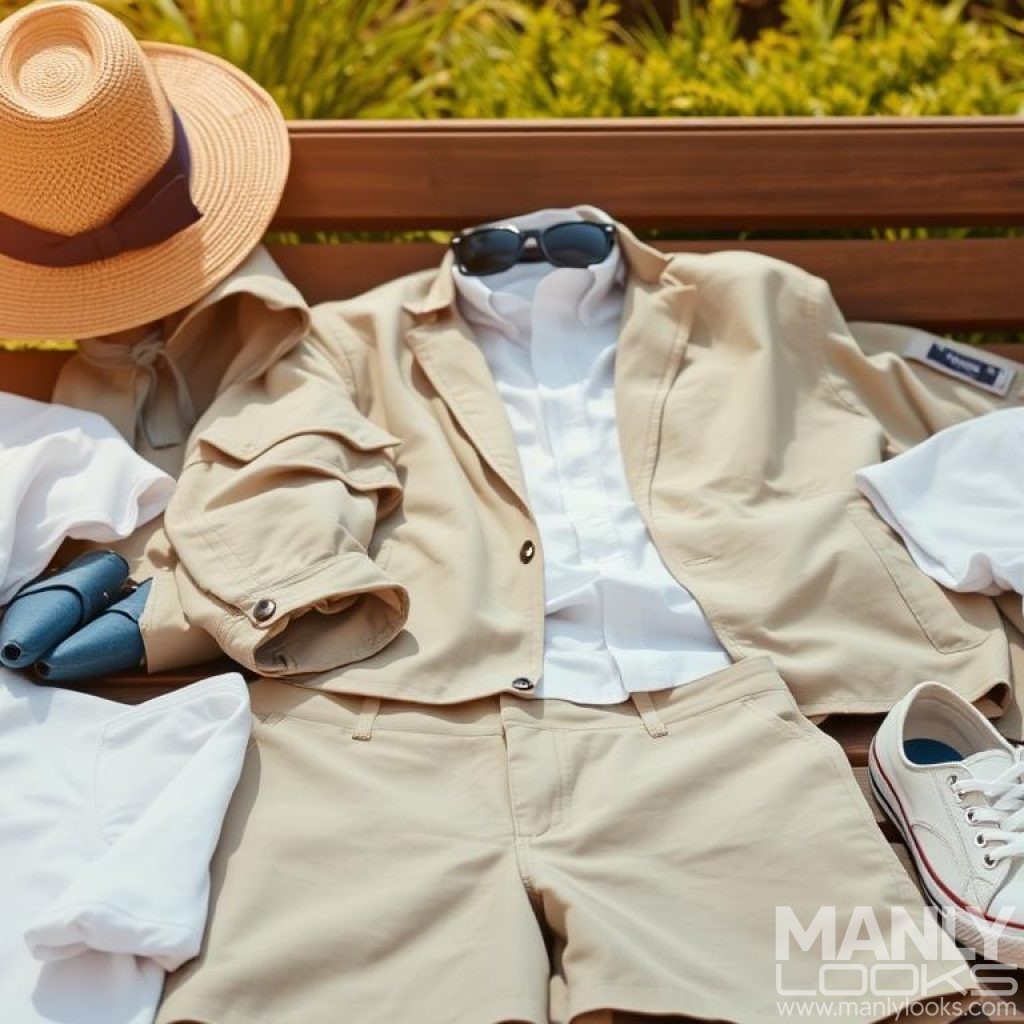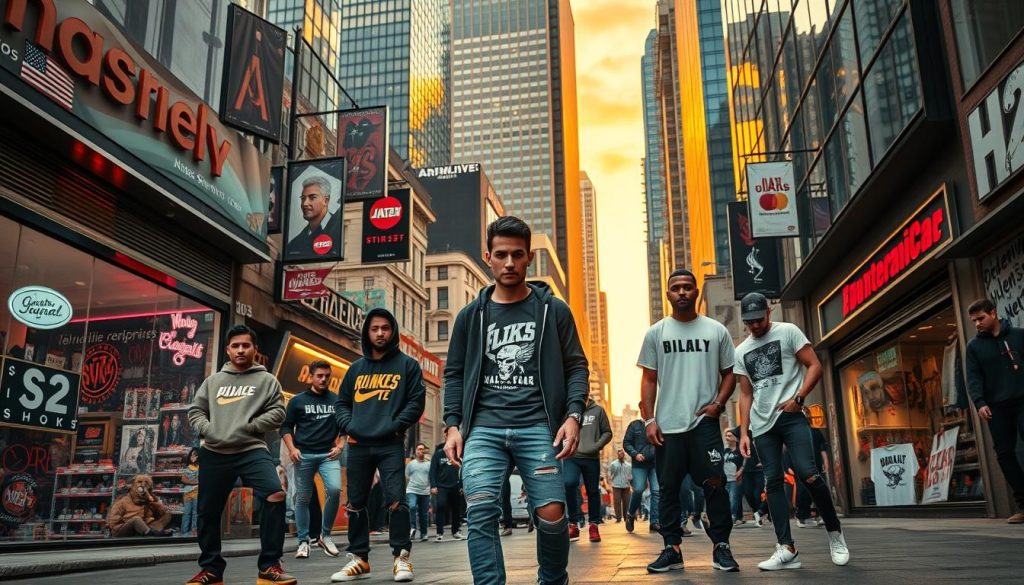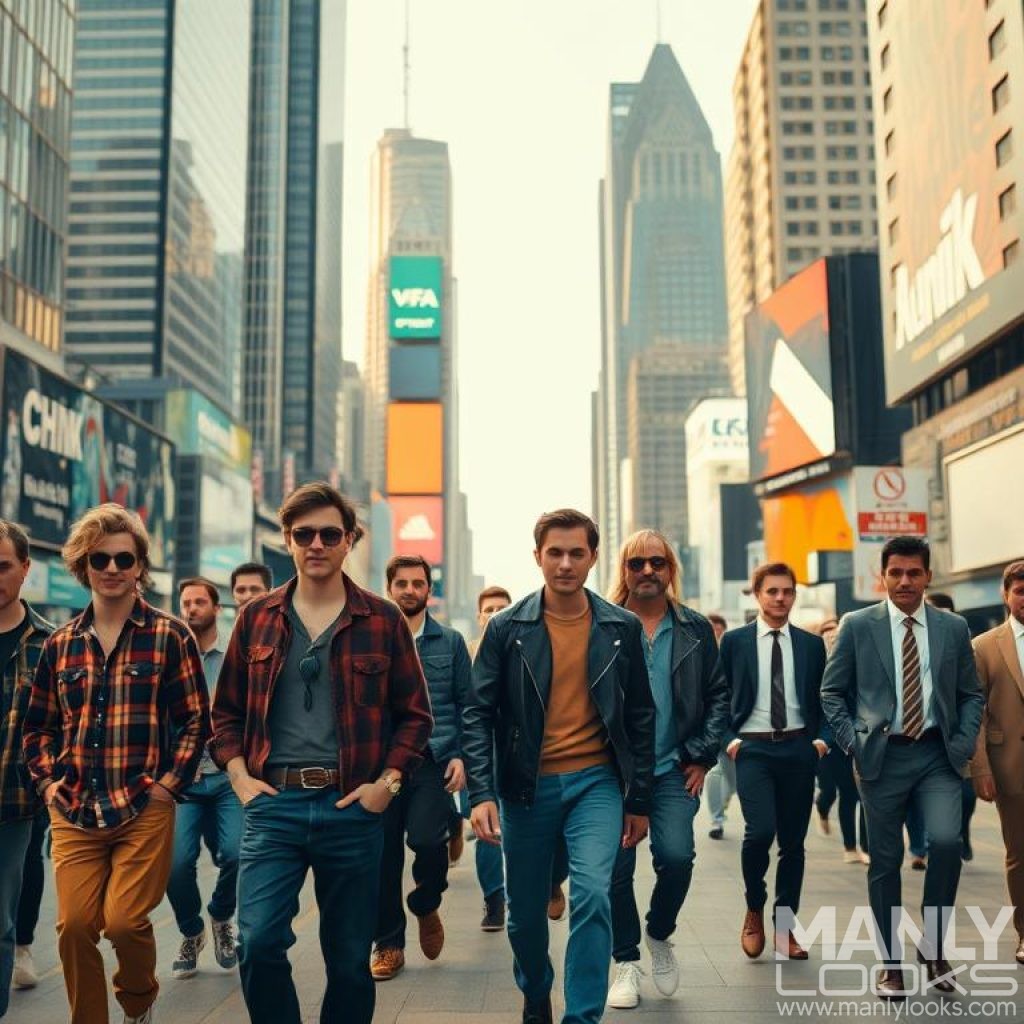The year 2000 was a turning point for men’s style. It mixed casual comfort with sleek sophistication. Men’s fashion was bold, with eclectic patterns and textures.
As the millennium began, fashion trends shifted towards relaxed yet stylish clothes. Pop culture, music, and celebrity styles greatly influenced men’s fashion.
Key Takeaways
- The rise of streetwear as a mainstream fashion trend.
- Increased popularity of denim and casual wear.
- The influence of 90s fashion lingering into 2000.
- Emergence of new luxury fashion brands.
- Impact of pop culture on men’s fashion.
The Y2K Aesthetic: Fashion at the Turn of the Millennium
The year 2000 was a turning point in men’s fashion. It mixed futuristic and retro styles. This era, known as the Y2K aesthetic, was shaped by culture and technology.
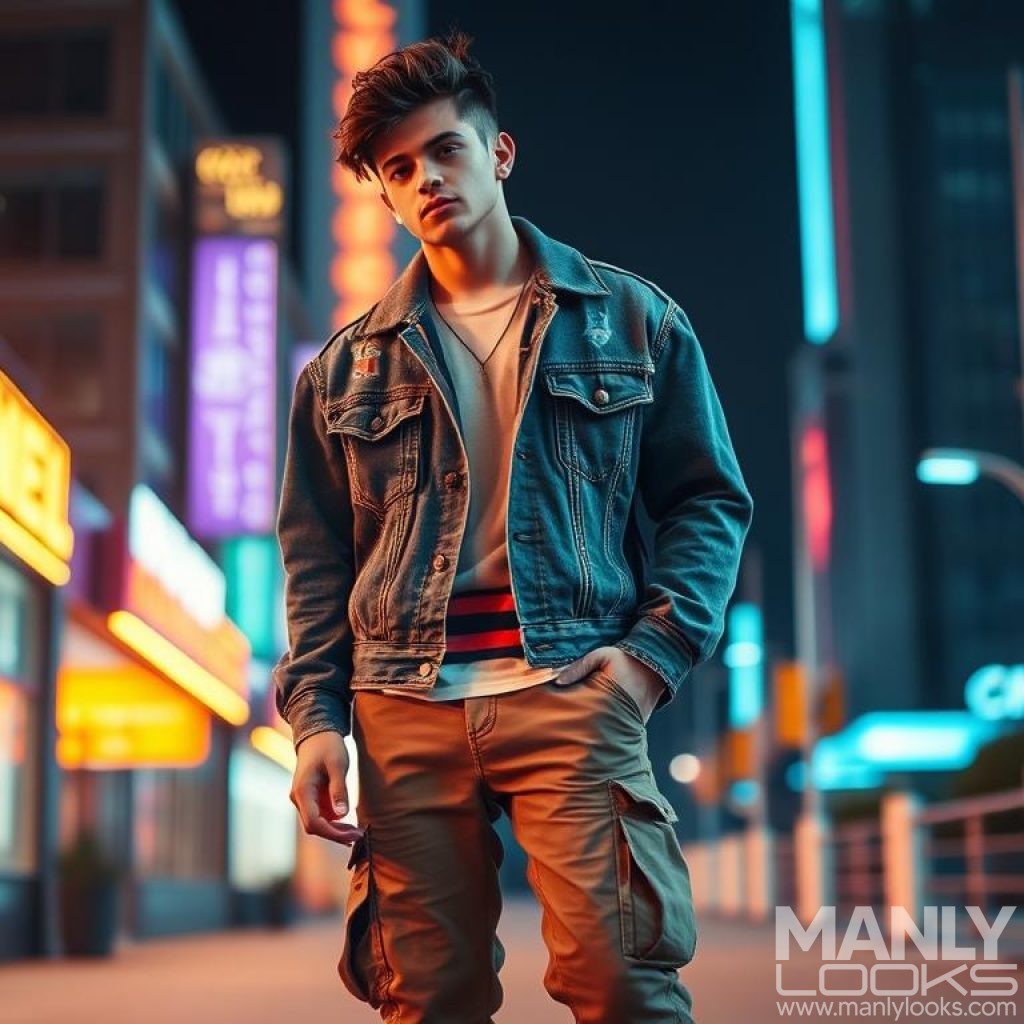
Cultural Context of the New Millennium
The start of the new millennium was full of hope and a look to the future. Men’s fashion started to use new materials and styles. It was inspired by science fiction and technology.
Pop culture also played a big role. Music and film stars set the trends.
| Cultural Influence | Fashion Element |
|---|---|
| Music Industry | Baggy jeans, oversized shirts |
| Film Industry | Futuristic accessories, metallic fabrics |
Technology’s Influence on Fashion Aesthetics
Technology was key in shaping the Y2K aesthetic. New ways to make fabrics and print designs came about. This led to bold, futuristic looks.
Technology also changed how we saw fashion. Online platforms became big, showing the future of fashion.
The mix of technology and fashion brought new styles. Men’s fashion became more futuristic and bold.
2000 Men Fashion: A Year of Style Evolution
Men’s fashion in 2000 was a mix of styles, showing the cultural and tech changes of the time. This mix was a key feature of the era, as fashion moved from the 90s grunge to the Y2K style.
Transitioning from 90s to Y2K Style
The late 1990s were all about grunge and minimalism. But as the new millennium came, men’s fashion started to get brighter and more futuristic. Technology and the internet showed up in clothes, with neon, metallic, and bold graphics.
The change was slow, blending old and new styles. For example, baggy jeans and big clothes from the 90s were in 2000. But they were often matched with new accessories or tops.
Key Fashion Movements and Influences
Several big movements shaped men’s fashion in 2000. Streetwear and urban fashion became big, with brands like Tommy Hilfiger and Sean John. Hip-hop culture also kept making fashion more casual and cool.
Luxury and designer labels also became more popular. Brands like Gucci and Prada became more accepted, showing a move towards high-fashion in men’s clothes.
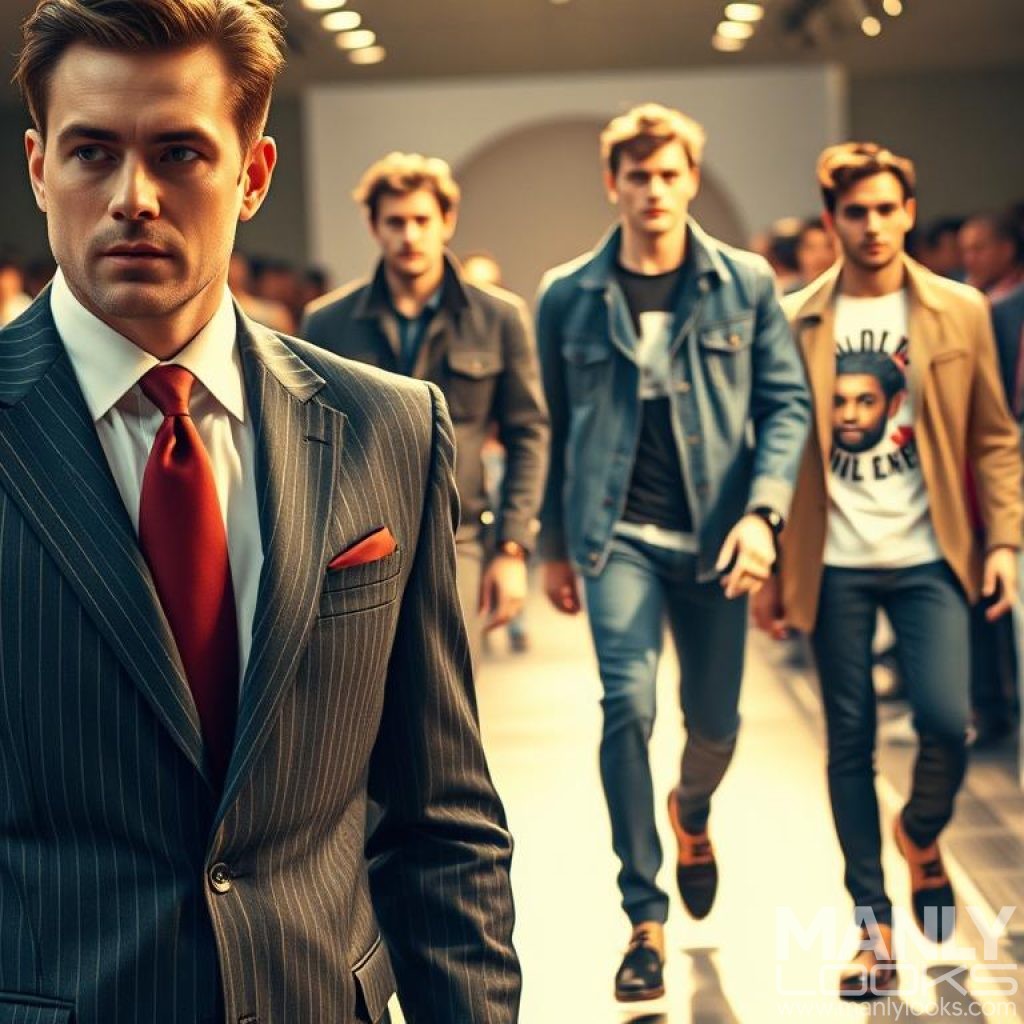
| Fashion Element | Description | Influence |
|---|---|---|
| Streetwear | Casual, comfortable clothing with urban flair | Hip-hop culture, urban fashion |
| Luxury Labels | High-end designer clothing | Gucci, Prada, luxury fashion trend |
| Futuristic Elements | Neon colors, metallic fabrics | Y2K aesthetic, technological influence |
Casual Everyday Wear for Men in 2000
As the new millennium started, men’s fashion shifted towards relaxed styles. The year 2000 was key for casual wear, with new trends that shaped the decade. Comfort and practicality were at the heart of men’s everyday fashion.
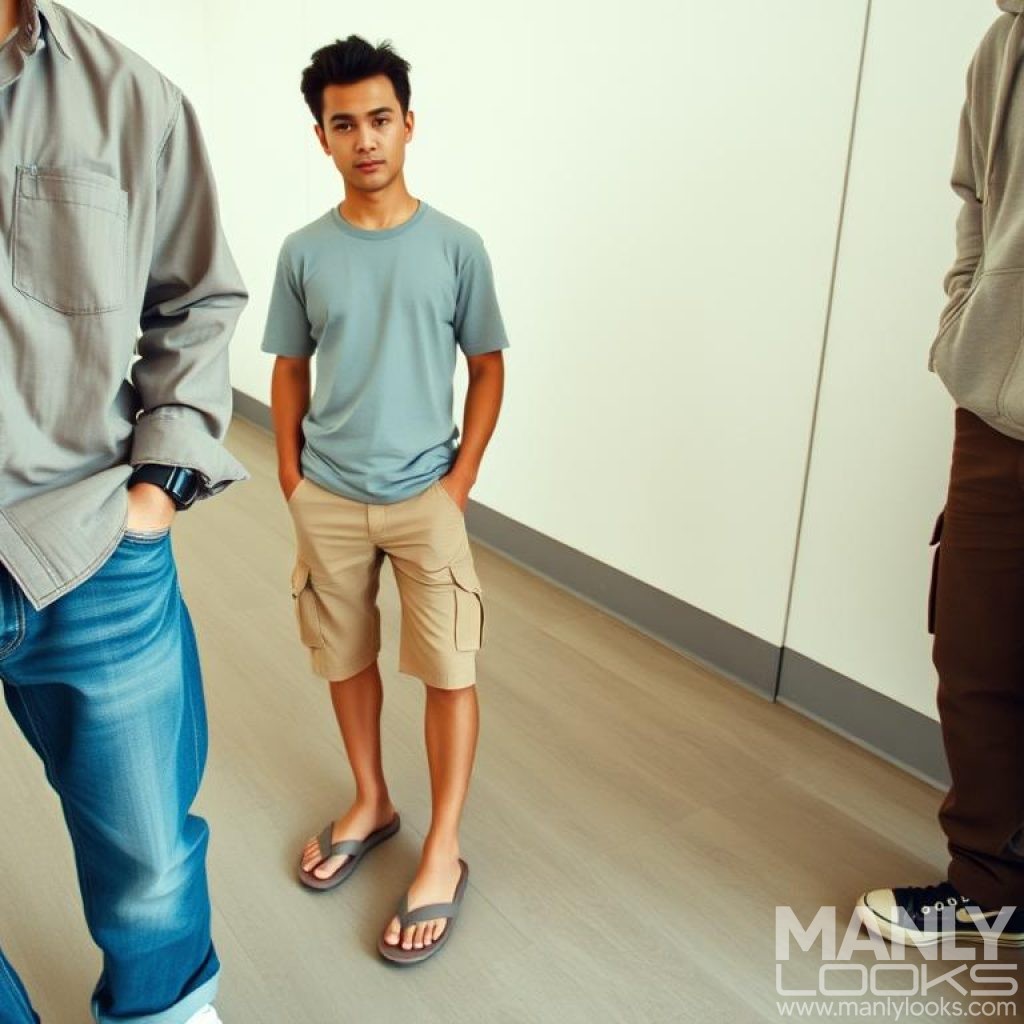
Baggy Jeans and Cargo Pants Phenomenon
Baggy jeans and cargo pants were big in 2000. They were comfy and became a must-have in many men’s closets. Baggy jeans were a hit with the young crowd, often worn with big shirts and sneakers.
- Baggy jeans were loose and often had bold designs or patches.
- Cargo pants were stylish and practical, with lots of pockets.
T-shirt Trends and Graphic Designs
T-shirts in 2000 were all about making a statement. They featured bold logos, witty slogans, and graphic designs. Graphic tees were a key part of casual wear, often worn alone or under hoodies.
- Graphic designs went from simple logos to detailed artwork.
- Band tees were big, showing off music tastes.
Sweatshirts, Hoodies, and Layering
Layering was big in 2000 men’s casual wear. Sweatshirts and hoodies were comfy and versatile, great for any weather. They were perfect for layering over T-shirts or tank tops.
- Sweatshirts and hoodies came in many colors and designs.
- Layering with different textures and colors made outfits interesting.
In conclusion, 2000 was a big year for men’s casual wear. It was all about comfort, practicality, and creativity. The trends of that year set the stage for future fashion, making it a memorable time in men’s fashion history.
Denim Revolution: Jeans and Jean Jackets
The year 2000 saw a big change in denim. More premium denim brands emerged, and people started wearing jeans as a fashion statement.
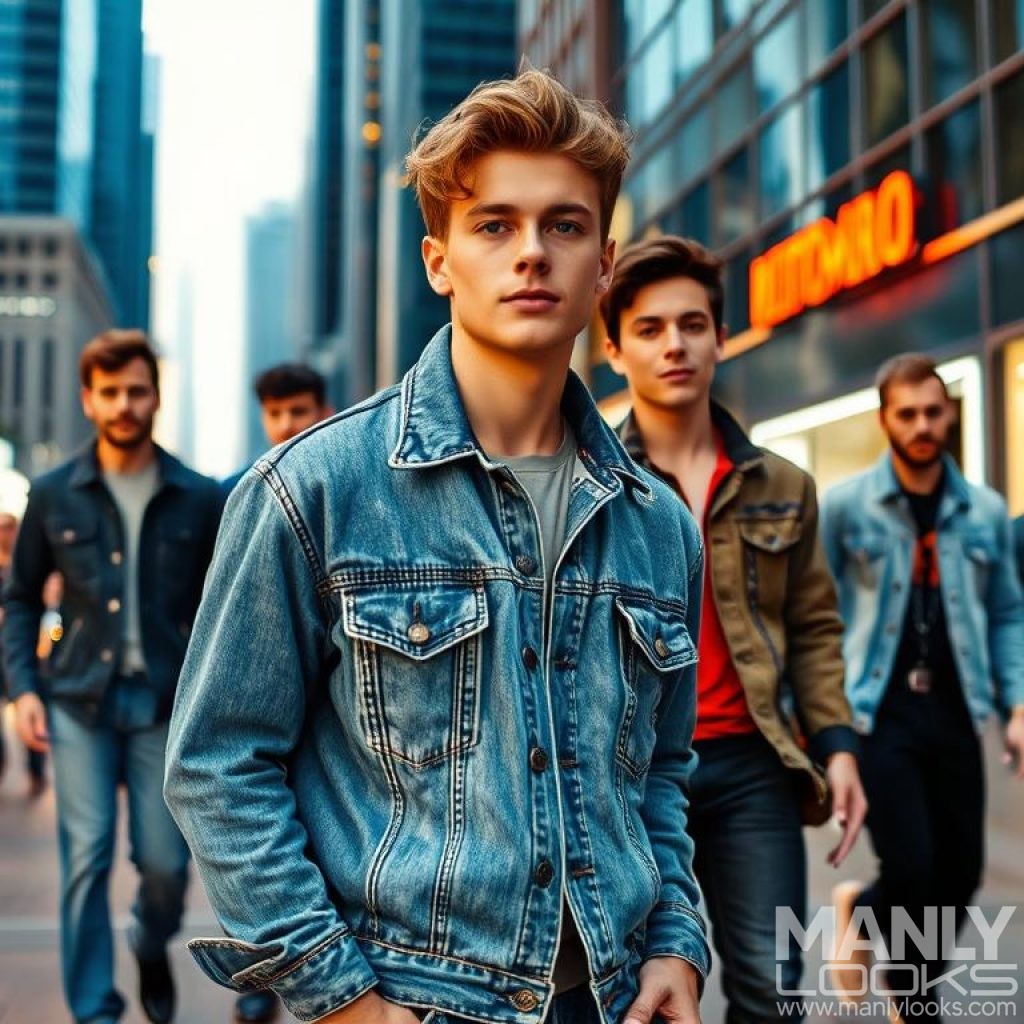
Rise of Premium Denim Brands
In 2000, high-end denim brands became popular. Diesel and 7 For All Mankind were among them. They offered jeans with unique designs and quality.
These brands introduced new washes, fits, and details. They aimed to meet the demand for stylish, yet comfortable denim.
Popular Cuts, Washes, and Styling
2000 was all about different denim styles. Baggy jeans, low-rise cuts, and distressed washes were in. Men went for bold styles, like jeans with fancy stitching and unique washes.
Jean jackets also came back, with many styles. From classic to fancy designs, denim allowed for endless looks. It was perfect for casual or stylish outfits.
Tom Ford once said, “Denim is very much about the way you wear it, it’s a very personal thing.” This shows how important personal style was in the denim revolution of 2000.
Sportswear and Athletic-Inspired Fashion
In 2000, sportswear and athletic-inspired fashion led men’s style. This shift showed a move towards comfort and practicality. It was not just about being comfy; it was also a style statement.
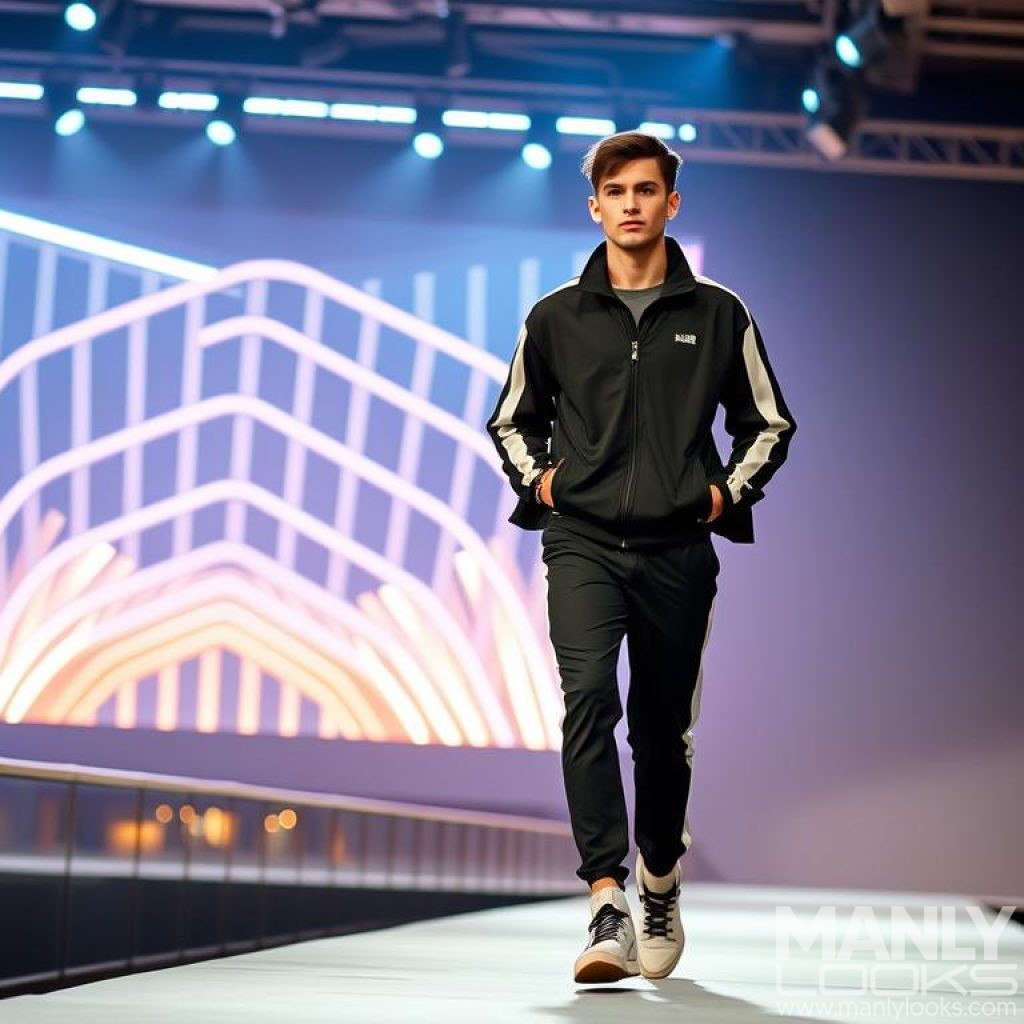
Track Suits and Performance Wear
Track suits, made from materials like velour or fleece, became essential. Brands like Nike and Adidas led the way. They offered styles that were both good for sports and cool for daily wear. Performance wear, with its special fabrics and designs, also became popular.
Track suits and performance wear were loved for their flexibility. They were perfect for sports and everyday wear. This showed a trend towards more casual men’s fashion.
Sports Team Merchandise and Fan Apparel
Sports team merchandise and fan apparel were big in 2000. Jerseys, hats, and more with team logos were all the rage. Fans wanted to show their team pride. This was fueled by the NBA and NFL’s growing popularity.
This trend showed how sports culture and fashion merged. Items once just for sports became fashion statements.
Formal and Business Attire in 2000
The year 2000 was a big time for men’s formal and business clothes. It mixed old styles with new trends. As the millennium started, classic looks got a fresh spin.
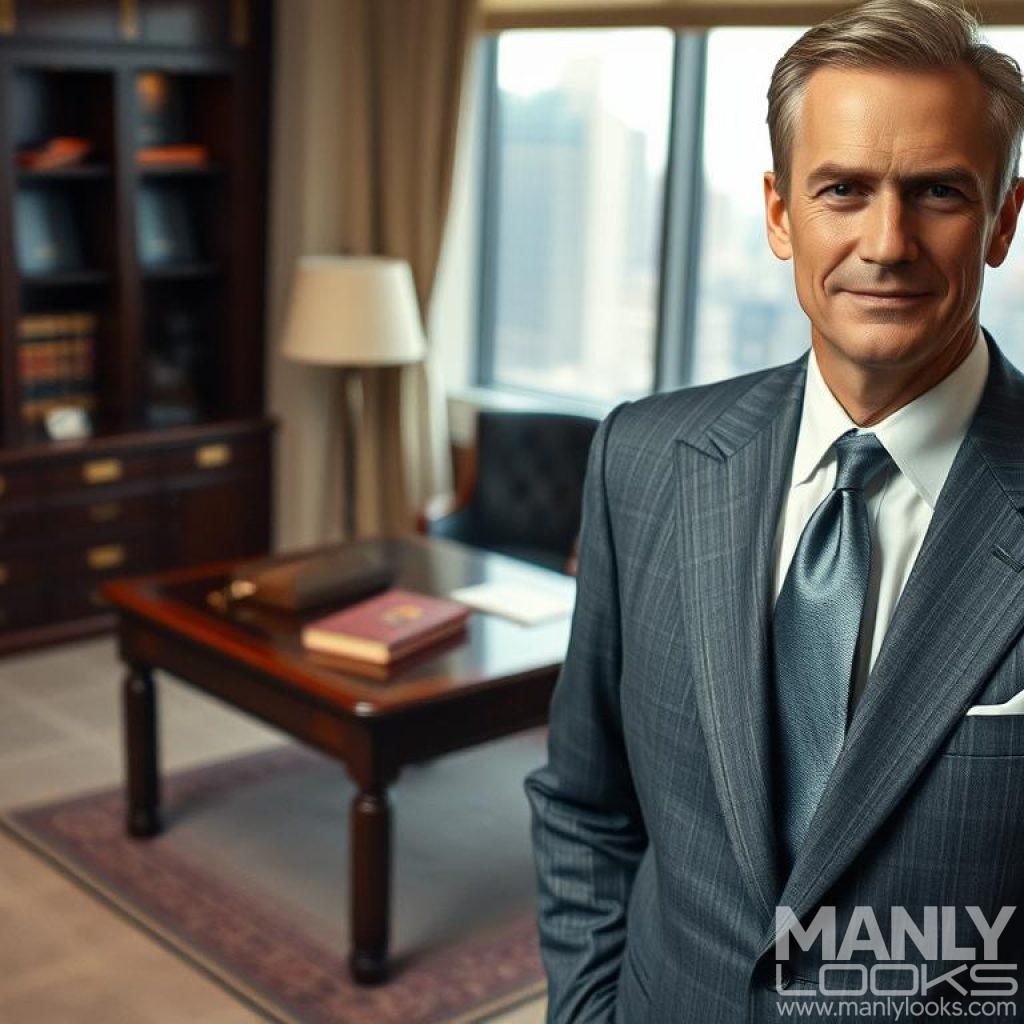
The Modern Corporate Look
In 2000, the corporate style was about being professional but also showing your own style. Suits were key, in colors like navy, black, and gray. It wasn’t just about the suit; it was about the whole outfit.
Key elements of the modern corporate look included:
- Tailored suits that fit well
- Classic dress shirts in white or light blue
- Ties that added a touch of personality
- Polished leather shoes, typically in black or brown
Suit Styles, Colors, and Tailoring
Suit styles in 2000 varied, from classic two-button to trendy three-button. The two-button suit was popular for its versatility. Colors were mostly muted, with navy and gray being favorites for formal events.
Tailoring was key for a modern suit. A well-made suit made a big difference in how professional a man looked. The fit was important, with clean lines and a good silhouette.
Business Casual Evolution
Business casual kept evolving in 2000, with workplaces getting more relaxed. This allowed men to show their style with khakis and polo shirts at work.
Business casual in 2000 was about being both professional and comfy. It was a move away from the strict suit and tie, towards a more relaxed yet polished look.
Streetwear and Urban Fashion Trends
In 2000, streetwear and mainstream fashion started to mix more. This was thanks to hip-hop’s growing influence. Streetwear, once just for a few, was now a big deal in men’s fashion.
Influence of Hip-Hop on Fashion
Hip-hop had a big impact on fashion in 2000. Stars like Jay-Z and Kanye West were changing music and fashion. Baggy jeans, big shirts, and sports jerseys became common, showing off the hip-hop style.
This culture was more than clothes; it was a way of life. It included music, dance, and art. This made streetwear appeal to more people, beyond just urban areas.
Emerging Streetwear Brands
2000 was the year new streetwear brands started to pop up. Brands like Stüssy and Supreme were getting popular. They were known for their cool designs, comfort, and being hard to find.
| Brand | Notable Features | Influence |
|---|---|---|
| Stüssy | Graphic T-shirts, Surf-inspired designs | Bridged streetwear with surf culture |
| Supreme | Box Logo designs, Skateboarding culture | Popularized skate culture in streetwear |
Iconic Urban Looks
In 2000, urban fashion was all about big clothes, bold logos, and mixing athletic and casual wear. Layering was key, with guys wearing T-shirts under hoodies or jackets.
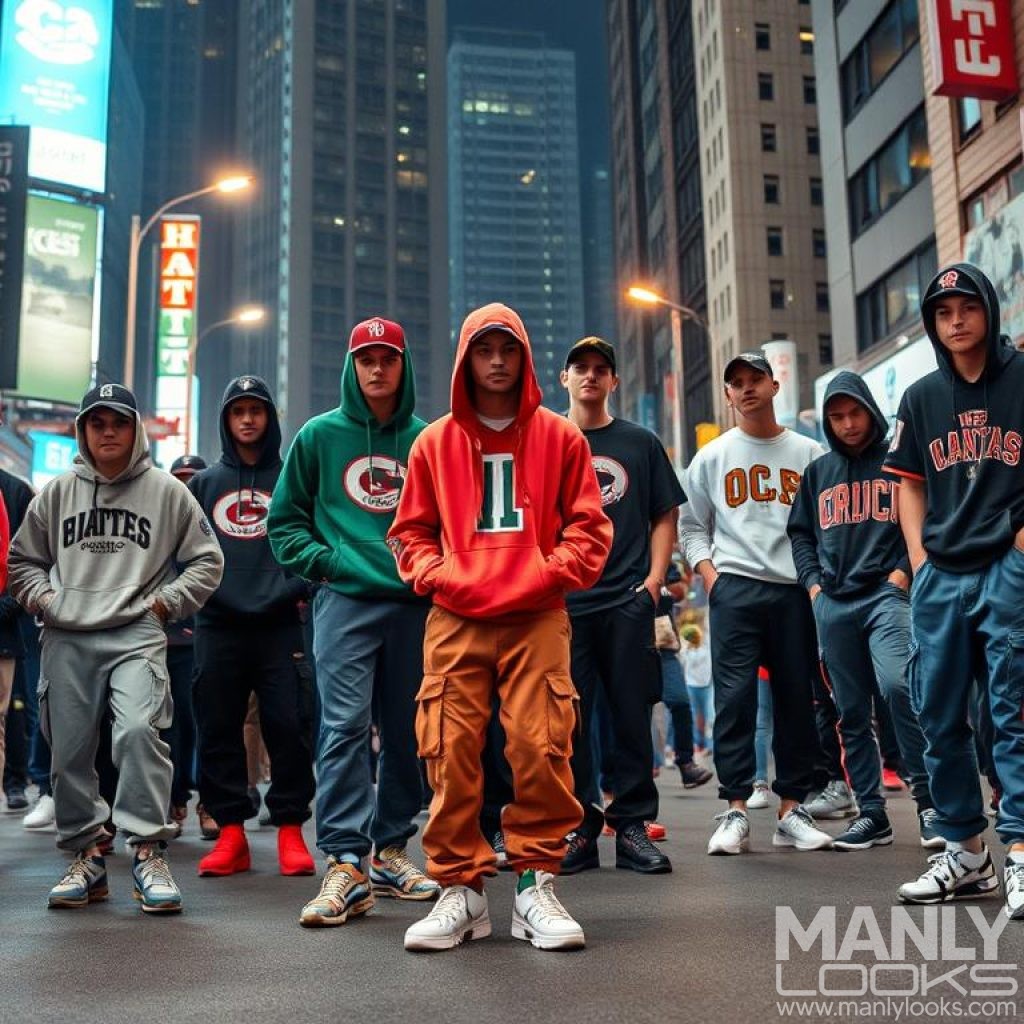
The mix of styles and hip-hop’s influence made 2000 a big year for streetwear and urban fashion.
Footwear That Defined the 2000 Male Wardrobe
As the new millennium started, men’s shoe trends mixed athletic and formal styles. The year 2000 was key for men’s fashion, with shoes being a big part of one’s look.
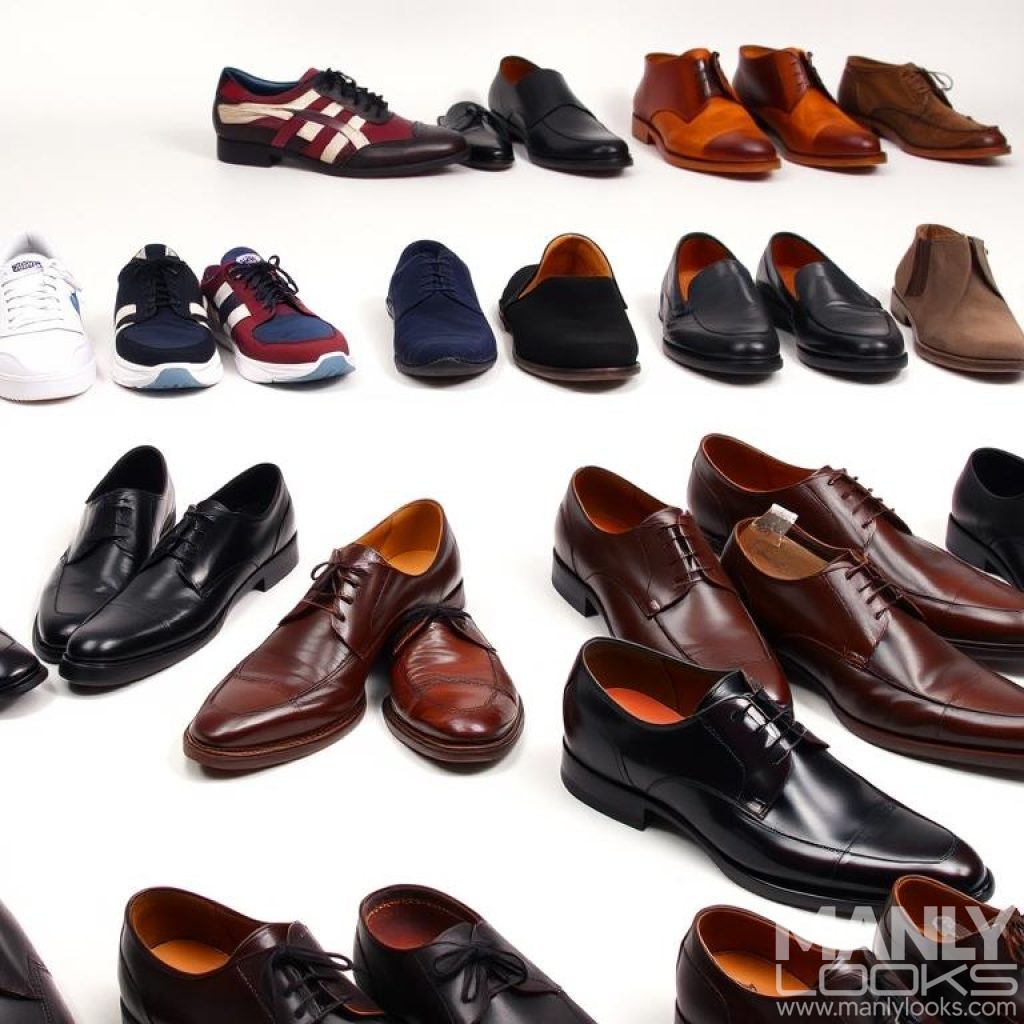
Athletic Shoes and Sneaker Culture
In 2000, athletic shoes, like sneakers, were a must-have for many men. Brands like Nike and Adidas led the way with stylish and practical shoes. Sneaker culture was booming, with men choosing bold, eye-catching designs.
Hip-hop culture’s impact on sneaker trends was clear, with big shoes and special releases becoming popular. This trend was about more than just comfort; it was a way to express fashion.
| Brand | Popular Model | Notable Feature |
|---|---|---|
| Nike | Air Jordan | Iconic design, endorsed by Michael Jordan |
| Adidas | Superstar | Classic shell-toe design, popular in hip-hop culture |
Casual and Formal Shoe Styles
While athletic shoes were on the rise, traditional styles like loafers, dress shoes, and boots were also evolving. These shoes were essential for different events.
For everyday wear, slip-on shoes and sandals were popular, showing a more laid-back approach to footwear. But for formal events, polished dress shoes made from quality leather were needed.
- Loafers: Slip-on style, often worn without socks
- Dress Shoes: Oxfords and Derbies, characterized by their lacing system
- Boots: Chelsea boots and work boots, adding versatility and style
In conclusion, 2000’s men’s shoe scene was varied, with athletic, casual, and formal styles all present. These trends set the stage for future shoe innovations, blending comfort, function, and style.
Must-Have Accessories for Men in 2000
Accessories were key in men’s fashion in 2000. They let men show their unique style. The right piece could turn a simple look into something cool.
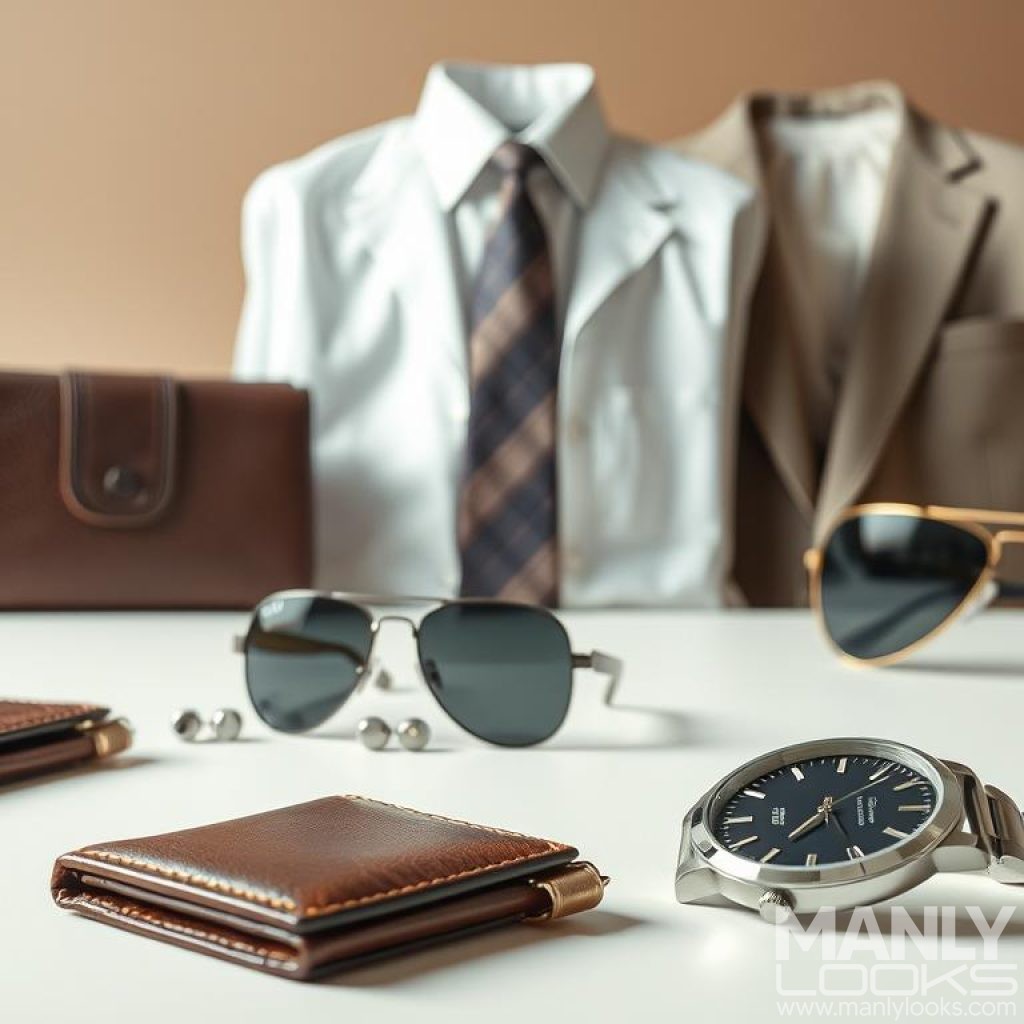
Watches, Chains, and Jewelry
In 2000, watches were more than just time-telling devices. They were a way to show off style. Brands like TAG Heuer and Rolex were favorites for those who wanted both precision and fashion.
Gold chains and big jewelry were also big. Thanks to hip-hop, men wore chunky chains and bold rings. It was a way to make a statement with fashion.
Hats, Caps, and Headwear Trends
Hats and caps were must-haves for men in 2000. Snapback caps were all the rage, thanks to hip-hop. Baseball caps, with logos or team names, were perfect for a casual look.
Beanies and wool hats kept heads warm and stylish in the cold months. They were both practical and fashionable.
Bags, Belts, and Other Accessories
Backpacks, messenger bags, and fanny packs were both useful and trendy. Leather belts, with eye-catching buckles, were essential. They added a touch of class to any outfit.
Sunglasses, with their many styles and colors, added a cool vibe. The goal was to mix function with fashion.
Popular Brands and Designers Shaping Men’s Style
At the start of the new millennium, men’s fashion was a mix of luxury and everyday brands. This mix of high-end and mainstream styles defined the fashion of 2000.
Luxury and Designer Labels
Luxury brands like Gucci, Prada, and Versace led men’s fashion. They offered top-notch clothing and accessories that showed off style and class.
These brands were famous for their quality materials, fine craftsmanship, and bold designs. They were the go-to for men who loved fashion.
| Luxury Brand | Notable Feature | Impact on Men’s Fashion |
|---|---|---|
| Gucci | Bold logos and vibrant colors | Redefined luxury fashion with eclectic designs |
| Prada | Understated elegance and sophistication | Set trends with minimalist yet luxurious apparel |
| Versace | Bold prints and daring designs | Influenced men’s fashion with glamorous, daring styles |
Mall Brands and Mainstream Fashion
Brands like Gap, Levi’s, and Tommy Hilfiger were big names too. They offered stylish, affordable clothes for everyone.
These brands were known for their casual wear. Denim, tees, and jackets were must-haves in many men’s closets.
Emerging Independent Labels
New independent labels started to make their mark in men’s fashion. They brought fresh, unique designs that stood out from the usual.
These labels mixed streetwear with high-fashion. They gave men a chance to explore new styles.
By 2000, men had many styles to choose from. This mix of luxury, mainstream, and independent fashion showed the ever-changing world of men’s fashion.
Hairstyles and Grooming Trends of 2000
As the new millennium started, men’s hairstyles and grooming changed a lot in 2000. This era was full of bold fashion and new grooming trends.
Popular Haircuts and Styling Methods
In 2000, men’s hairstyles were quite different. Some popular haircuts included:
- The “fade” haircut, which became popular among all ages.
- Spiky hair, styled with lots of gel or pomade.
- The “emo” and “scene” hairstyles, known for layered cuts and bold styles.
Styling products were key to these looks. Gels, pomades, and styling creams helped men achieve sleek or messy styles.
Facial Hair and Men’s Grooming Products
Facial hair was big in 2000. Trends included:
| Facial Hair Style | Description |
|---|---|
| Goatees | A favorite, often paired with a well-groomed beard or mustache. |
| Stubble | A rugged, slightly messy look that was in fashion. |
| Clean-shaven | A timeless look, kept up with razors and shaving creams. |
The market for grooming products grew a lot. There were many products for different facial hair styles and needs. Men’s grooming routines got more complex, with products for shaving, conditioning, and styling facial hair.
In conclusion, 2000 was a time of change in men’s fashion. It was a year of creativity and trying new things. The trends of that year helped shape future grooming and style innovations.
Celebrity Fashion Icons Influencing Men’s Style
In the year 2000, men’s fashion was shaped by celebrity icons. Musicians, movie stars, and athletes were not just entertainers. They also set the trends for men’s fashion.
Musicians and Their Signature Looks
Musicians were big influencers in men’s fashion in 2000. Stars like Jay-Z and Usher made oversized clothes popular. This included baggy jeans and large T-shirts.
Hip-hop culture was growing, and its fashion became mainstream.
- Baggy jeans and oversized clothing
- Gold chains and bold jewelry
- Sneakers, like Nike and Adidas
Movie Stars and Their Fashion Impact
Movie stars also shaped men’s fashion. Actors like Ryan Phillippe and Matthew McConaughey were style leaders. They wore stylish suits and casual clothes that many men wanted to copy.
Athletes as Style Trendsetters
Athletes were becoming big in men’s fashion. Stars like David Beckham and Allen Iverson set new styles. Beckham’s hairstyles were a big hit.
- Athleisure wear became more mainstream
- Sports jerseys and branded athletic wear
- Hairstyles, like Beckham’s “soccer cut”
Celebrity fashion icons in 2000 greatly influenced men’s style. Their trends are remembered today and can be seen in men’s fashion.
Conclusion: The Enduring Legacy of 2000 Men’s Fashion
The year 2000 was a turning point in men’s fashion. It saw the rise of streetwear, the comeback of denim, and the mix of athletic and formal wear. These trends from 2000 are shaping today’s style, with many of them staying popular.
Styles like baggy jeans, graphic T-shirts, and sleek athletic shoes are back in fashion. The influence of 2000 men’s fashion is clear in today’s love for luxury streetwear and the big role of athletic brands in fashion.
Fashion keeps changing, but 2000 men’s fashion’s impact is clear. It shows the era’s creativity and cultural importance. By looking at the trends and styles of that time, we see how they’ve shaped men’s fashion today. This shows the lasting effect of 2000 men’s fashion and its ongoing influence.

